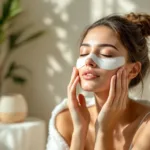The Hidden Link Between Stress and Beauty: How Stress Affects Your Skin and Hair (And How to Fix It Naturally)
Introduction
In today’s fast-paced world, stress has become an unavoidable part of daily life. While its impact on mental health is widely discussed, many people overlook the profound effects stress can have on physical appearance—particularly on skin and hair. Chronic stress triggers a cascade of hormonal and inflammatory responses that accelerate aging, exacerbate skin conditions, and lead to hair loss. The good news? By understanding the science behind stress-induced beauty woes and adopting natural remedies, you can mitigate damage and restore your skin’s glow and hair’s vitality.
This comprehensive guide explores the biological mechanisms linking stress to skin and hair deterioration, identifies common stress-related beauty concerns, and provides actionable, natural solutions to counteract these effects. Whether you’re battling breakouts, dull skin, or thinning hair, this article will equip you with the knowledge and tools to reclaim your radiance—naturally.
The Science of Stress and Its Impact on Skin and Hair
1. How Stress Affects the Body
Stress triggers the hypothalamic-pituitary-adrenal (HPA) axis, leading to the release of cortisol, the body’s primary stress hormone. While cortisol is essential for survival, chronic elevation disrupts multiple bodily functions, including:
- Skin Barrier Function – Cortisol weakens the skin’s lipid barrier, increasing transepidermal water loss (TEWL) and leading to dryness, sensitivity, and irritation.
- Collagen Breakdown – Elevated cortisol suppresses collagen production while increasing enzymes like MMPs (matrix metalloproteinases), which degrade collagen and elastin, accelerating wrinkles and sagging.
- Inflammation – Stress activates pro-inflammatory cytokines, worsening conditions like acne, eczema, psoriasis, and rosacea.
- Hair Growth Cycle Disruption – Cortisol shifts hair follicles from the growth (anagen) phase to the resting (telogen) phase, leading to excessive shedding (telogen effluvium).
2. Common Stress-Induced Skin Problems
A. Acne and Breakouts
Stress increases sebum production (thanks to cortisol and androgens) while impairing skin repair, leading to clogged pores and inflammation. Studies show that students experience more acne flare-ups during exams, highlighting the stress-acne connection.
B. Premature Aging
Chronic stress accelerates glycation (where sugar molecules bind to collagen, making it stiff and brittle) and oxidative stress, contributing to fine lines, wrinkles, and loss of elasticity.
C. Dullness and Dehydration
Stress reduces blood flow to the skin, depriving it of oxygen and nutrients. The result? A pale, tired complexion with diminished radiance.
D. Increased Sensitivity and Irritation
A compromised skin barrier makes skin more reactive to environmental aggressors, leading to redness, itching, and irritation.
3. How Stress Damages Hair
A. Hair Thinning and Shedding
Telogen effluvium (stress-induced hair loss) causes excessive shedding 2-3 months after a stressful event. In severe cases, stress may also trigger alopecia areata (patchy hair loss).
B. Slower Growth and Brittle Strands
Reduced blood circulation to the scalp starves follicles of essential nutrients, leading to weaker, slower-growing hair.
C. Scalp Issues
Stress exacerbates dandruff, seborrheic dermatitis, and scalp psoriasis due to increased inflammation and oil production.
Natural Ways to Combat Stress-Related Skin and Hair Damage
1. Stress Management Techniques
A. Mindfulness and Meditation
Studies show that meditation lowers cortisol levels by up to 30%. Even 10 minutes of deep breathing or guided meditation daily can improve skin and hair health.
B. Regular Exercise
Physical activity boosts endorphins (natural mood lifters) and improves circulation, delivering oxygen and nutrients to skin and hair. Yoga, in particular, reduces cortisol and inflammation.
C. Adequate Sleep
Sleep is when skin and hair repair themselves. Aim for 7-9 hours per night to optimize collagen production and follicle function.
2. Skin-Saving Nutritional Strategies
A. Antioxidant-Rich Foods
- Vitamin C (citrus, bell peppers) – Fights free radicals and boosts collagen.
- Omega-3s (fatty fish, walnuts) – Reduce inflammation and support skin hydration.
- Zinc (pumpkin seeds, lentils) – Heals acne and strengthens hair follicles.
B. Hydration
Dehydration worsens stress-related dryness. Drink at least 2L of water daily and incorporate hydrating foods (cucumbers, watermelon).
C. Adaptogenic Herbs
- Ashwagandha – Lowers cortisol and balances hormones.
- Holy Basil (Tulsi) – Reduces oxidative stress and inflammation.
3. Topical Natural Remedies for Skin and Hair
For Skin:
- Aloe Vera – Soothes irritation and repairs the skin barrier.
- Chamomile – Calms redness and inflammation.
- Rosehip Oil – Rich in vitamin A and fatty acids to combat aging.
For Hair:
- Rosemary Oil – Stimulates follicles and reduces shedding (studies show it rivals minoxidil).
- Coconut Oil Massage – Improves scalp circulation and prevents protein loss in hair.
- Green Tea Rinse – Contains EGCG, which reduces DHT (a hormone linked to hair loss).
Final Thoughts: Reclaiming Your Radiance Naturally
Stress is an inevitable part of life, but its effects on skin and hair don’t have to be permanent. By adopting a holistic approach—managing stress through mindfulness, nourishing your body with skin-friendly nutrients, and using natural topical treatments—you can counteract damage and restore vitality.
Remember, beauty starts from within. Prioritizing self-care isn’t just about looking good—it’s about feeling good, too. So take a deep breath, indulge in a calming herbal tea, and give your skin and hair the love they deserve. Your future self will thank you.
Would you like personalized recommendations based on your specific skin or hair concerns? Share your thoughts in the comments below!









Add comment